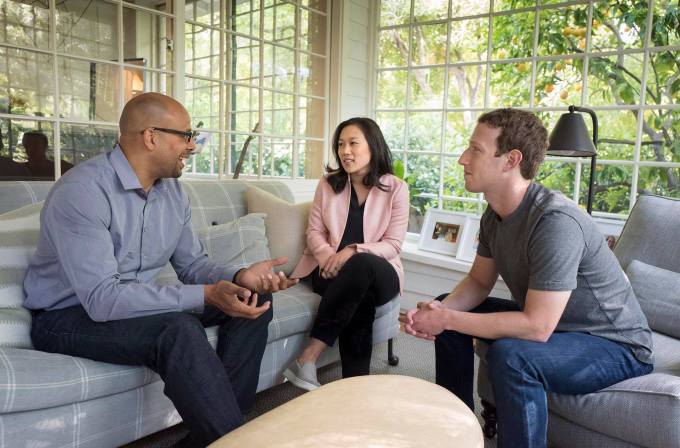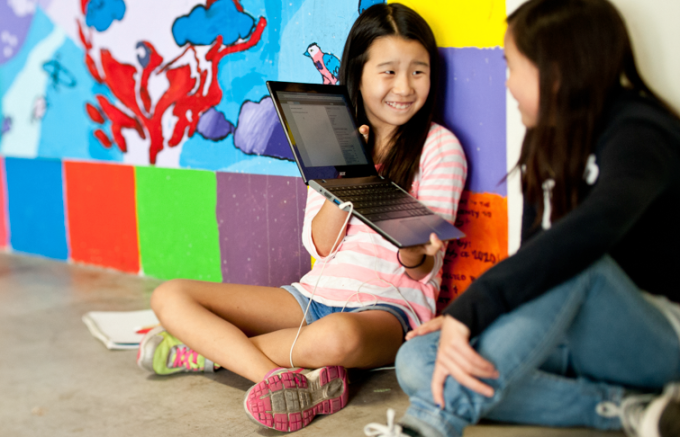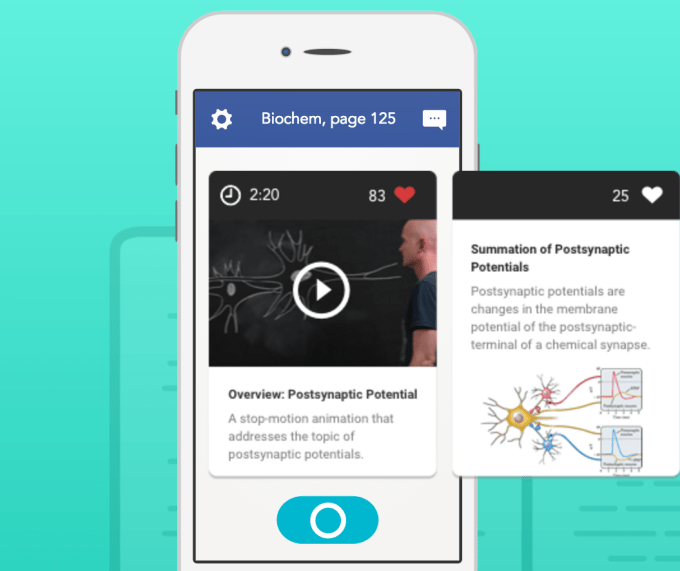The best teachers see how each student requires a unique inspiration and learning style. Yet with classroom sizes ballooning and teachers underpaid, there’s no way for students to get the dedicated attention they need. Luckily, technology could offer the adaptive education guidance pupils need to succeed.
That’s why in December Facebook CEO Mark Zuckerberg and his wife Priscilla Chan announced the $45 billion Chan Zuckerberg Initiative, with a major focus on education. Today, the couple hired former U.S. deputy secretary of the Department of Education James H. Shelton III to lead the CZI’s education wing and its two pillars: underserved communities and personalized learning.

Zuckerberg used the concept of personalization to create the most popular online source of information: the Facebook News Feed. Today during a Facebook Live chat, he explained just why personalization is critical to the future of education:
There’s very clear data that when a student has a very personalized approach to their education, where the most personalized approach is you have a one-to-one tutor or mentor that you’re spending your time with, then the education results are just significantly better than when you’re in a classroom learning at the same pace as all the other students in the same way as everyone else who’s there.
So what we really want to do, and strive to help teachers do over the next 10 or 20 years, is get to the point where every student in every classroom can have the same kind of education that you would have if you were working with a one-on-one tutor.
The reality is every student learns a little bit differently. Some people like working in groups. Some people like reading on their own, or doing practice problems, or playing learning games. Some people like talking to teachers. Some people just like learning on their own.
And then people work at their own pace. So in every classroom, there’s going to be students who grasp a concept really quickly and in the time that they’re now waiting for other students to understand that, they could have been learning more and getting ahead in different areas. And then at the same time there’s students for who a concept may be particularly hard for them. And if they only have the same amount of time as everyone else to learn that, then they might get left behind and miss some foundational step which is necessary to understand later concepts, and get left behind after that.
In the video above, both Chan and Zuckerberg discuss teachers that revealed to them the potential of personalized learning.
Priscilla recalls a robotics teacher who she calls “completely transformative” to her life. Mark explains that a math teacher named Mr. Fung “taught me about the way that I think about things and the way I process problems…I try to think about what the space of the answer might be and estimate things in order to try to get closer and closer to what the answer would be. And I didn’t understand that about myself.”

Providing this kind of education would be impossible to scale solely with human teachers. Yet Chan and Zuckerberg are already experimenting with employing technology to propel personalized learning. They provided broadband Internet, laptops and tablets to the Redwood City School District and some of its students. Chan meanwhile runs The Primary School, a holistic K-12 school and healthcare program pioneering new approaches to child development.
The family also run Zuckerberg Education Ventures. It’s made investments in startups like Volley, which lets students hold their phone’s camera over a textbook or assignment, have the content scanned using machine vision and be shown tips and study guides about the topic at hand. Another startup called Newsela surfaces news stories about current events in various reading levels appropriate for different students, and provides comprehension quizzes.
With Zuckerberg’s ample financial resources, you can imagine the CZI developing or funding software that assesses a student’s learning style and adapts to whether they grasp concepts better through a particular combination of voice, text, images, collaboration, individual work, practice or creativity. Then it could monitor understanding of each topic, and adjust the pace of instruction so they’re never forced to proceed while still confused.

Zuckerberg Education Ventures-backed Volley app
Shelton has the experience to make this happen. He previously led education programs for the Bill & Melinda Gates Foundation, and was president of 2U, a public company that brings colleges’ courses online. “Where I really plan to start is by doing a lot of listening and learning. There are a lot of people doing great work around the country,” Shelton said, countering some flimsy criticism lobbed at Zuckerberg about barging into to areas others have researched for years.
While computers have inched into classrooms, to date they’re used more like glorified calculators. They haven’t fundamentally changed the one-size-fits-all education style. But with a combination of philanthropy and technology, computers could grow into responsive teachers’ assistants so each student is taught the way they learn best.
